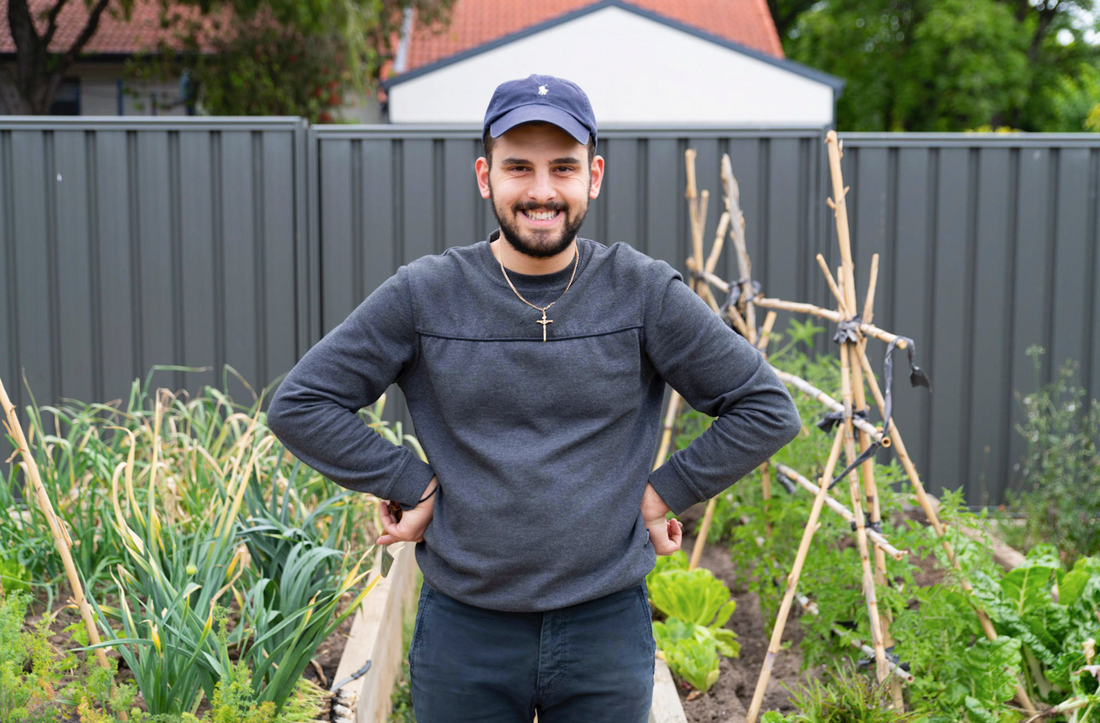Young gardener Steve Mastoukos shares some of his top tips for getting your veggies growing great this season! We took a trip to Steve's block one afternoon to chat with him about his garden.

Steve: Location, location location... Picking a good location for your garden is absolutely key! A subpar location can result in subpar veggies! Here are a few of my top tips for choosing a good site:
- Sunny spot: Most vegetables need 6 to 8 hours of direct sunlight per day. There are a few veggies (mostly the leafy ones) that will tolerate some shade.
- Drains well and doesn't stay wet: If you have poorly drained soil where water pools, plant veggies in a raised bed or raised row for improved drainage. Wet soil means wet roots, which can turn into rotted roots. If you have rocky soil, till and remove the rocks, as they will interfere with root growth and make for weaker plants.
- Stable and not windy: Avoid places that receive strong winds that could knock over your young plants or keep pollinators from doing their job. Nor do you want to plant in a location that receives too much foot traffic or floods easily. Plant in a location that would make Goldilocks smile—somewhere that's "just right."
- Nutrient-rich soil. You soil feeds your plants. If you have thin, nutrient-poor soil, you'll have poor, unhealthy plants. Mix in plenty of organic matter to help your plants grow.

I've also got five top tips for choosing vegetables:
- Choose what you (and your family) like to eat. If no one likes brussels sprouts, don't bother planting them! But if your kids love green beans, put more effort towards growing a big crop of beans.
- Be realistic about how many vegetables your family will eat. Be careful not to overplant, as you will only stretch yourself thin by trying to take care of tons of plants! (Of course, you could always give excess veggies away to friends, family, or the local soup kitchen.)
- Consider the availability of veggies at your grocery store. Maybe you want to grow tomatillos, instead of cabbage or carrots, which are readily available. Also, certain veggies are so far superior when homegrown, it's almost a shame not to consider them (we're thinking of garden lettuce and tomatoes). Also, homegrown herbs are far less expensive than grocery store herbs.
- Be prepared to take care of your plants throughout the growing season. Going on a summer holidays? Remember that tomatoes and zucchinis are growing strongest in the middle of summer. If you're gone part of the summer, you need someone to look after the crops or they will suffer. Or, you could just grow cool-season crops such as lettuce, kale, peas, and root veggies during the cooler months of late spring and early fall.
- Use high-quality seeds. Seed packets are less expensive than individual plants, but if seeds don’t germinate, your money—and time—are wasted. A few extra cents spent in spring for that year’s seeds will pay off in higher yields at harvest time.
That's all the tips I've got for you guys today, thanks for reading!






